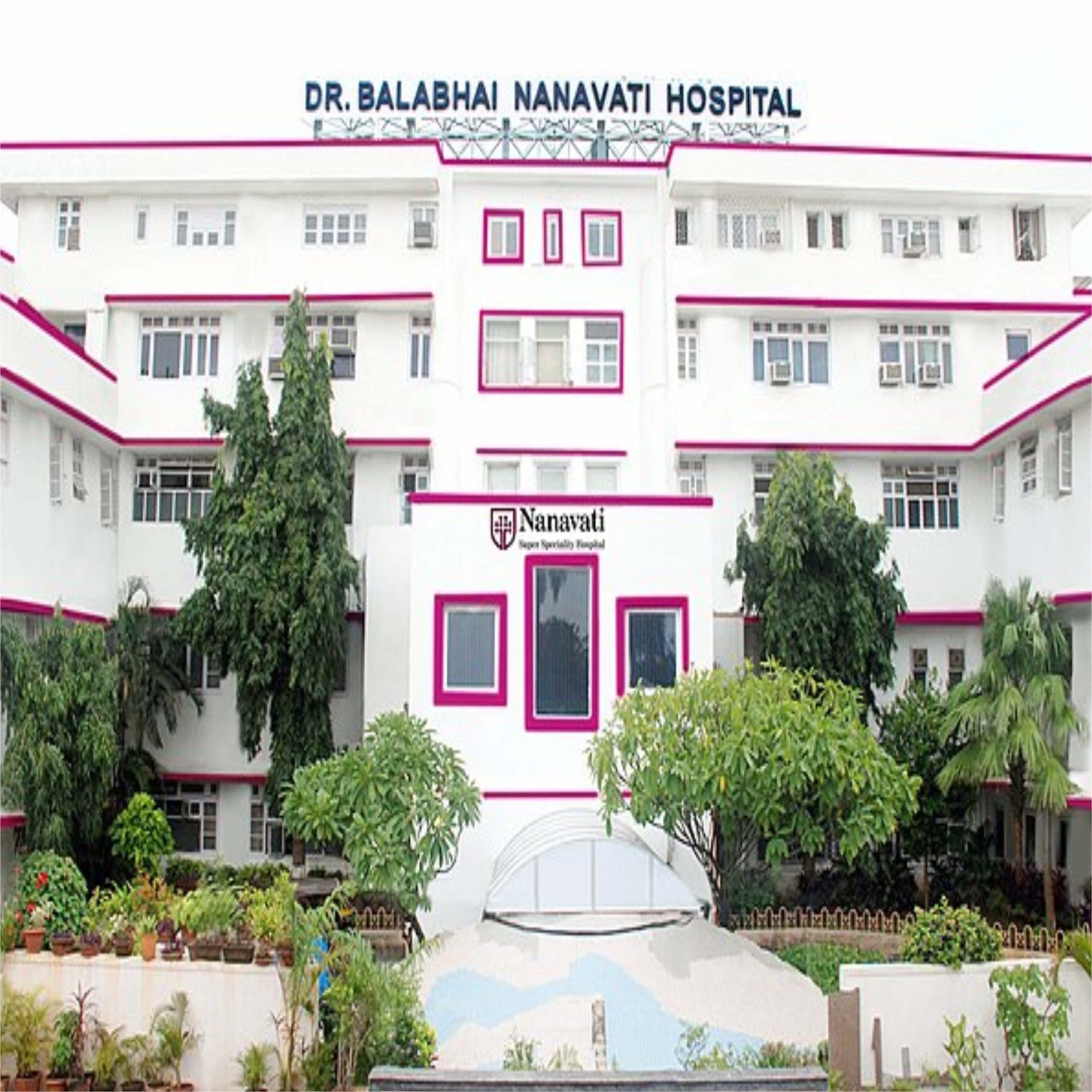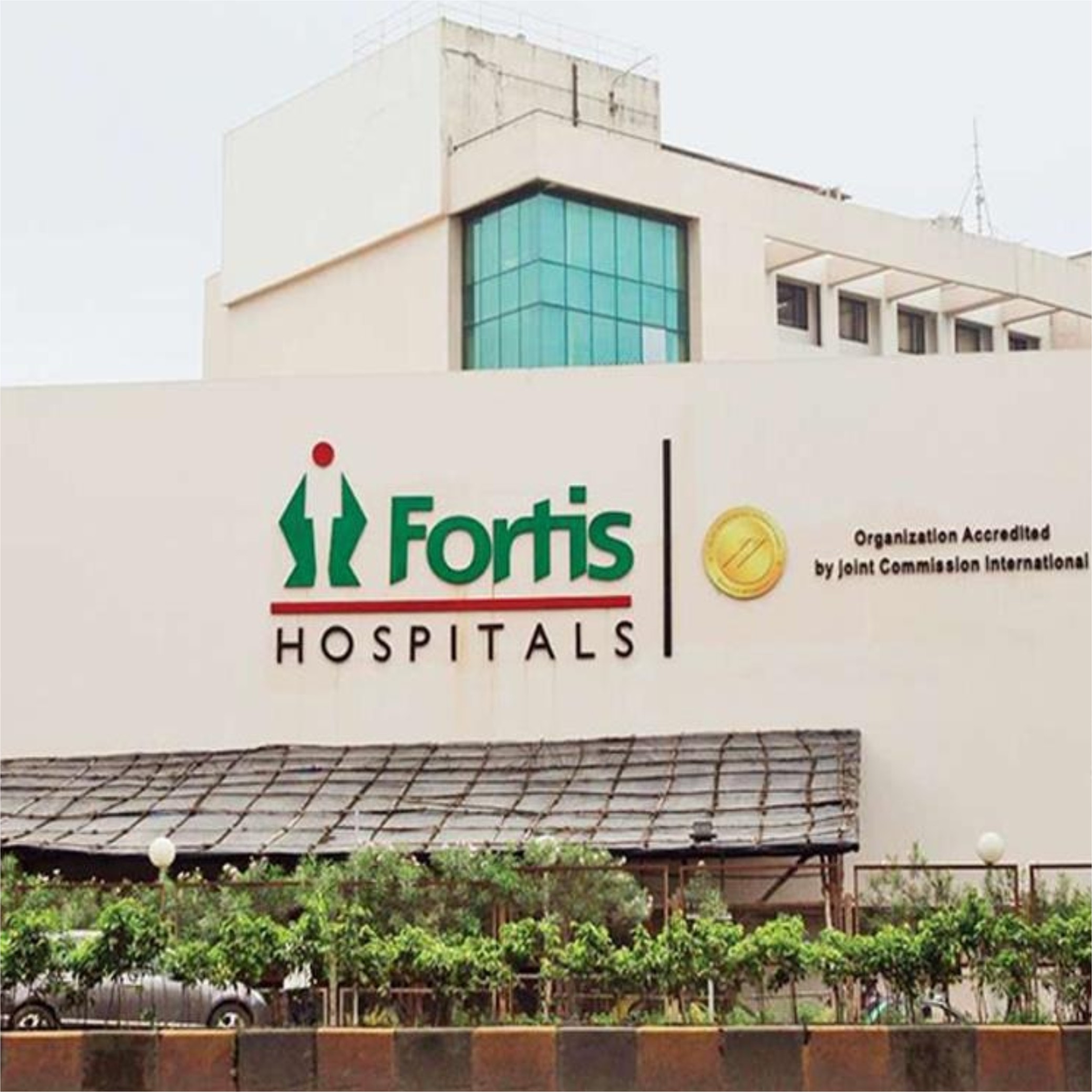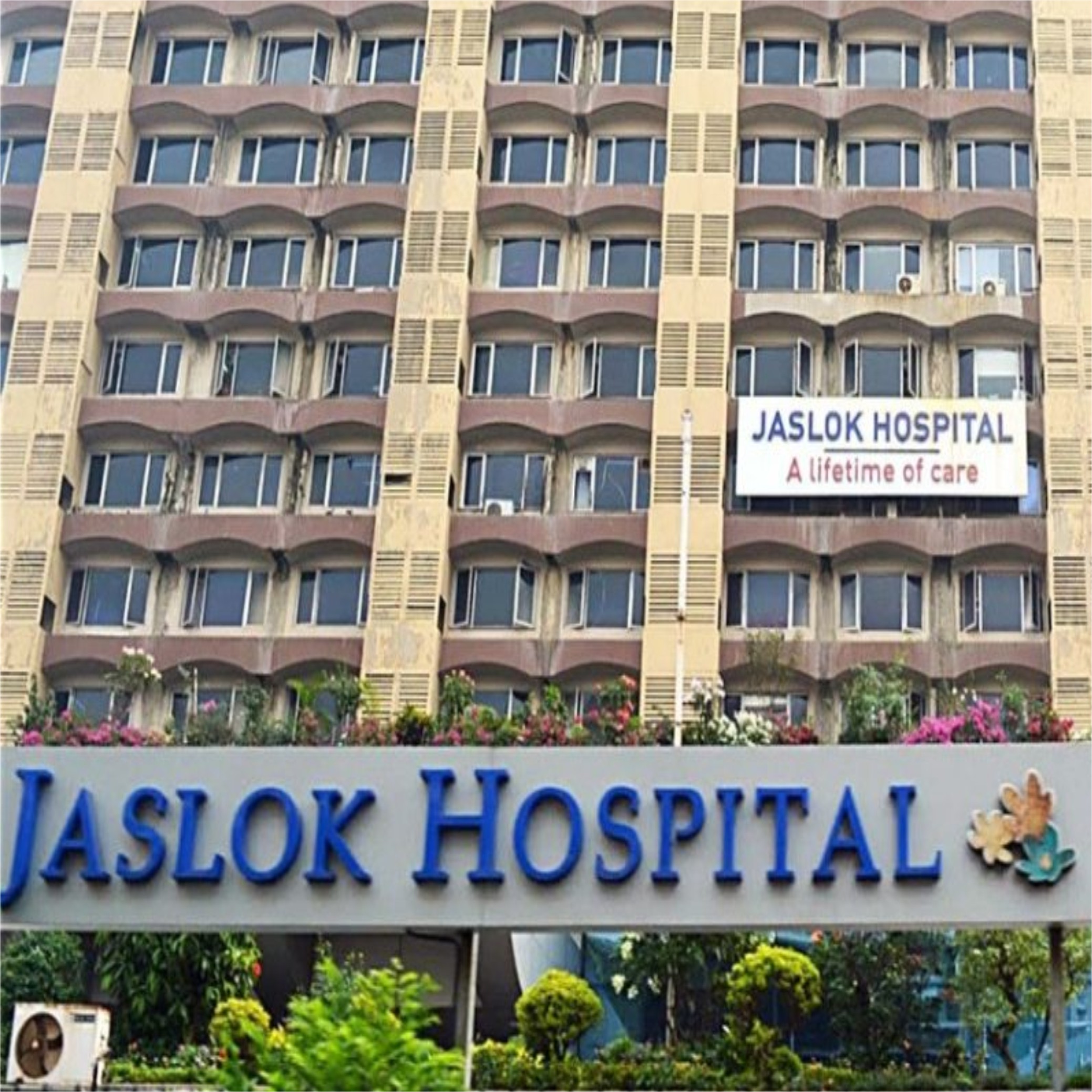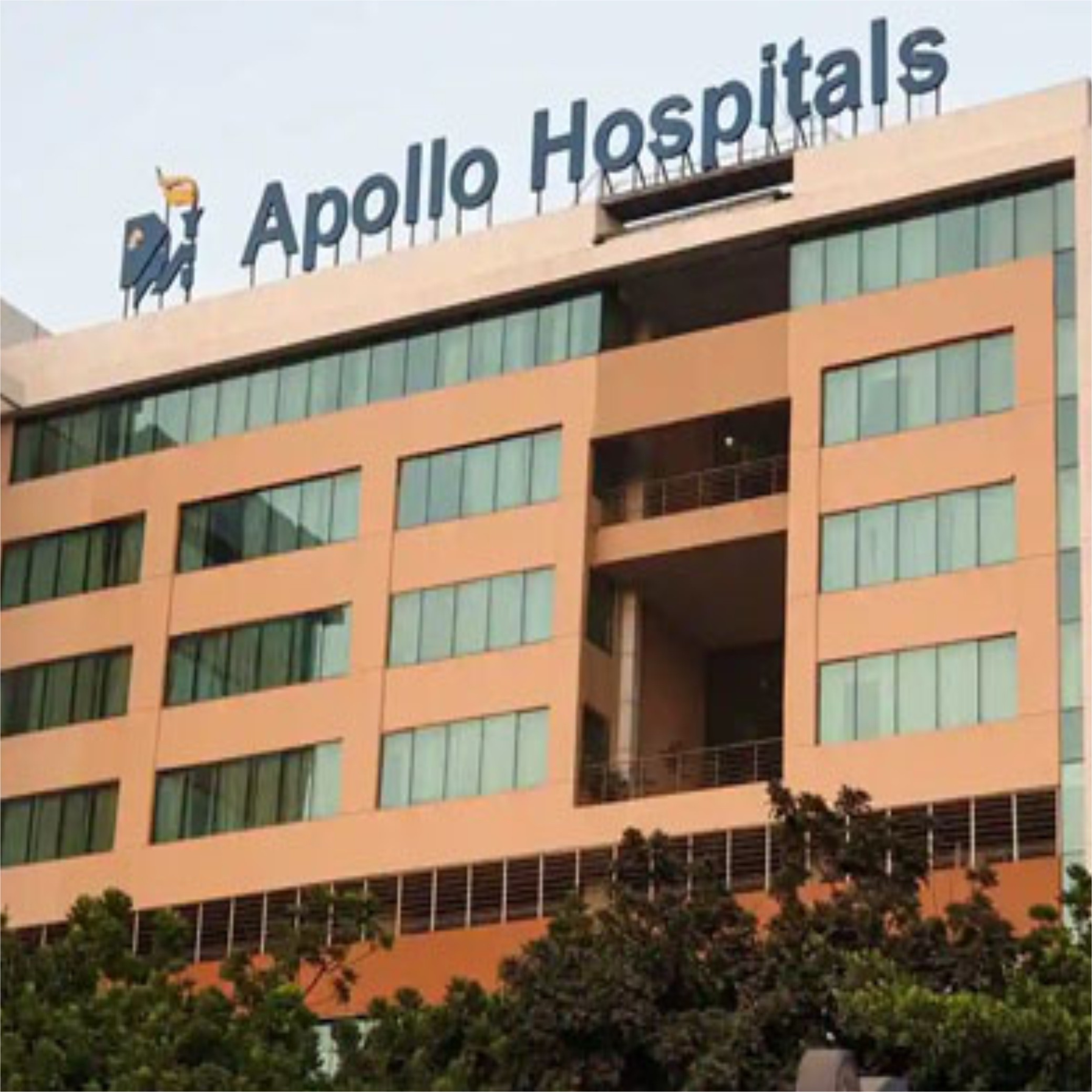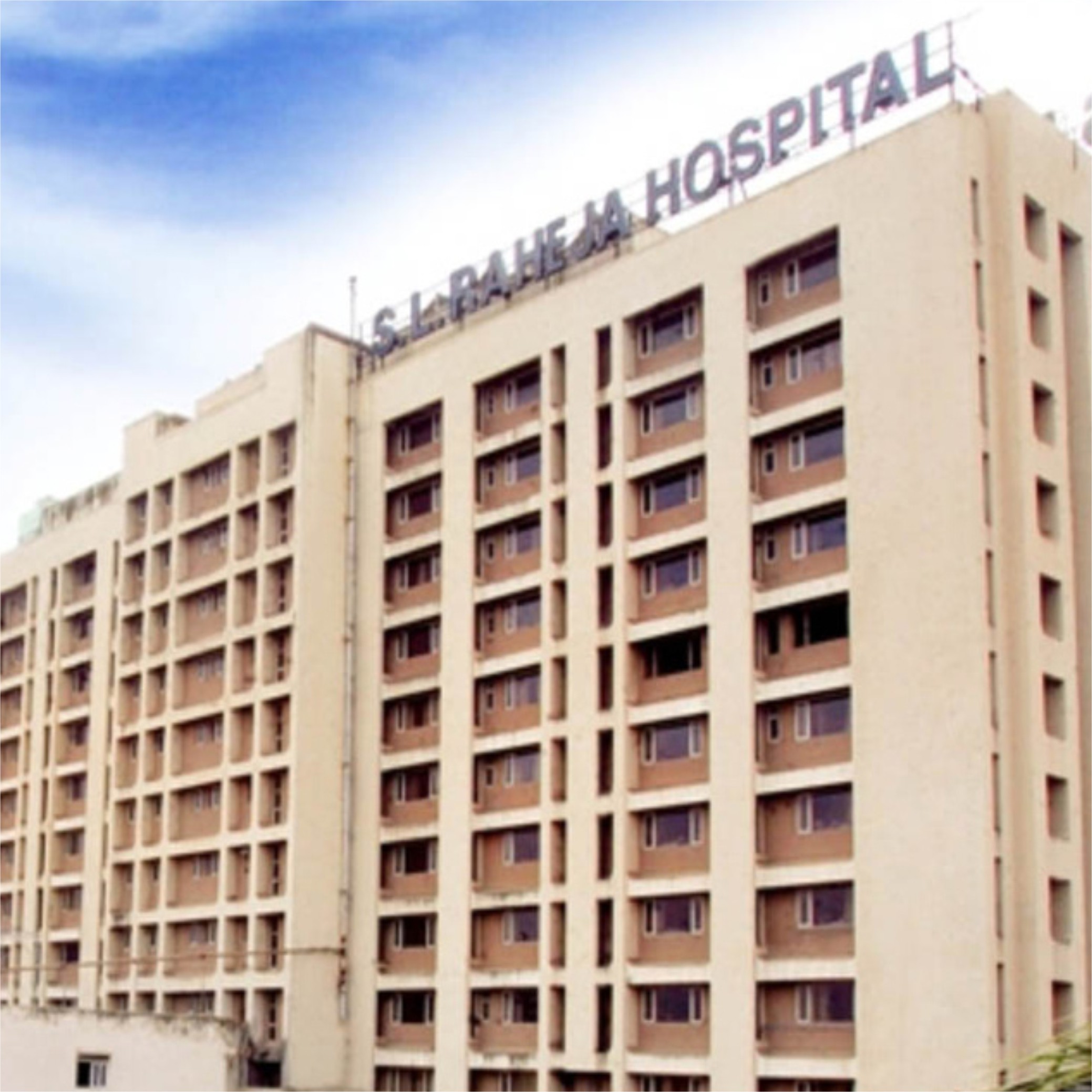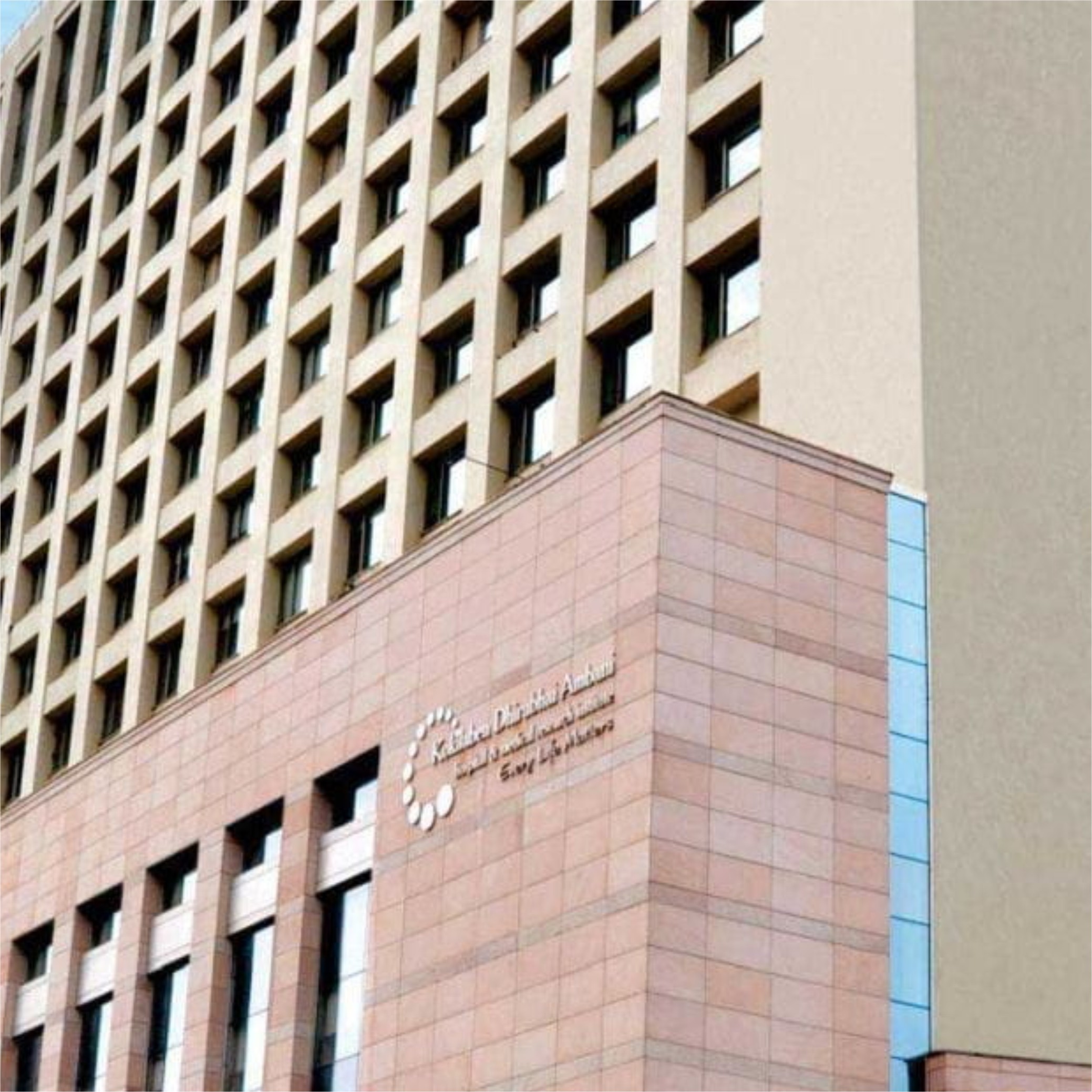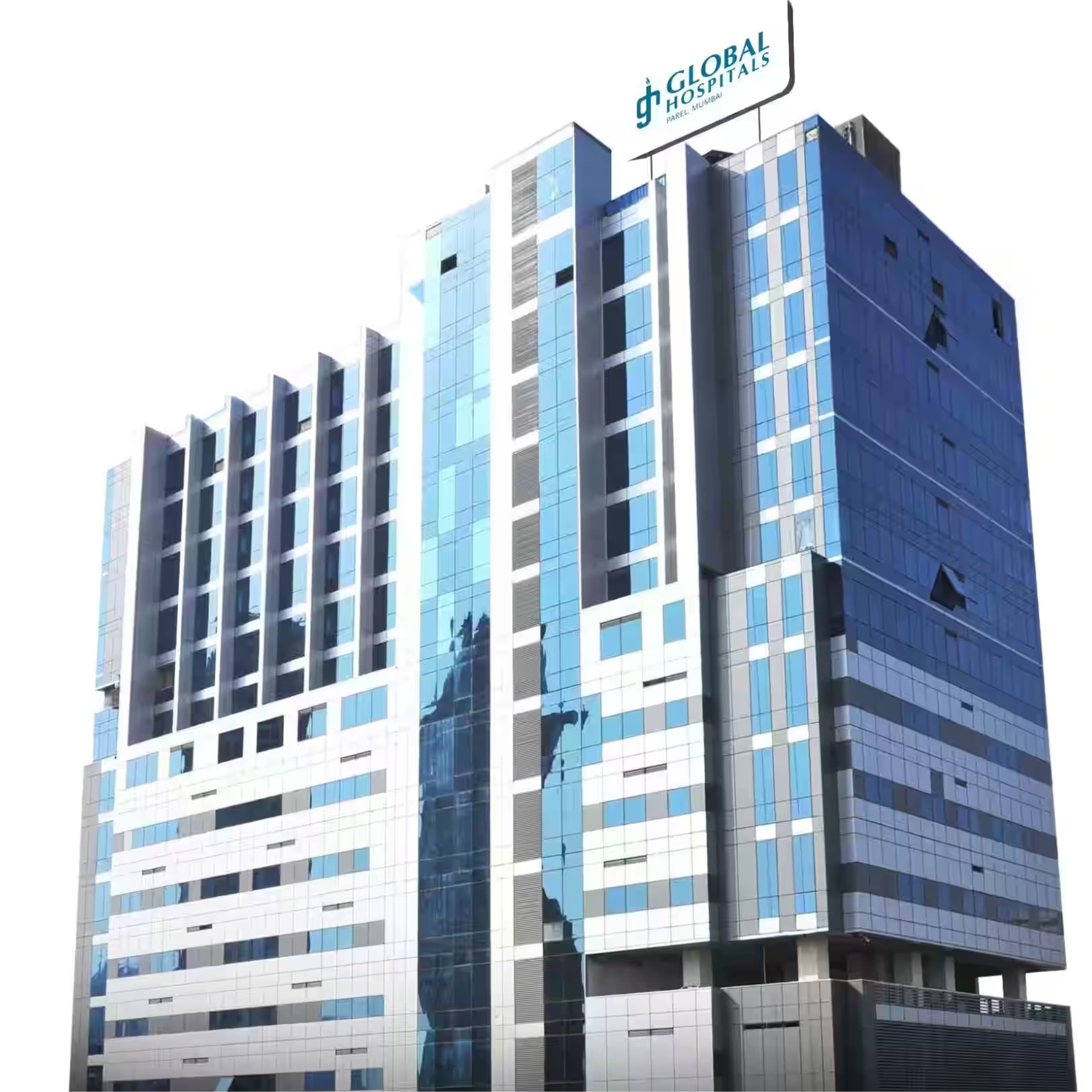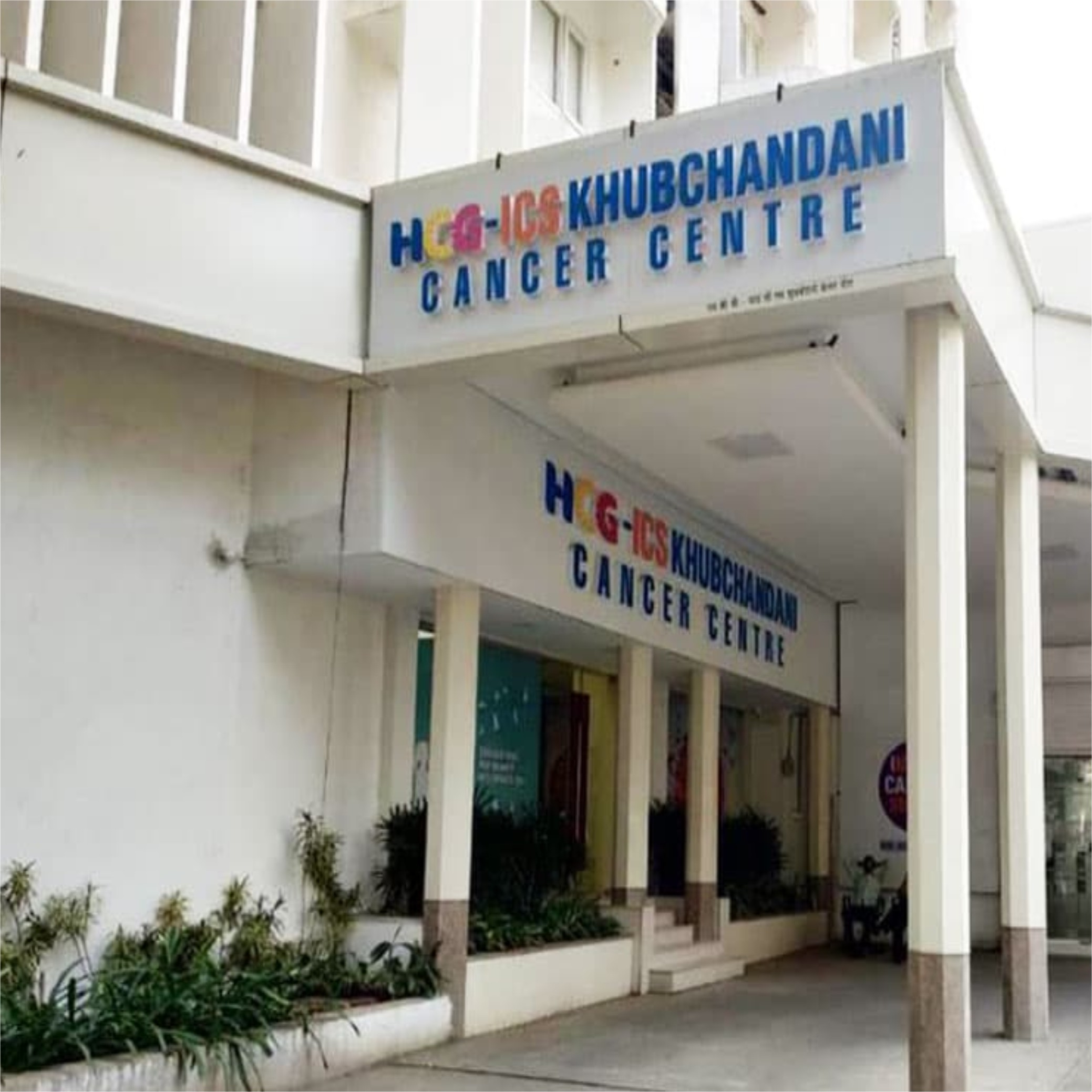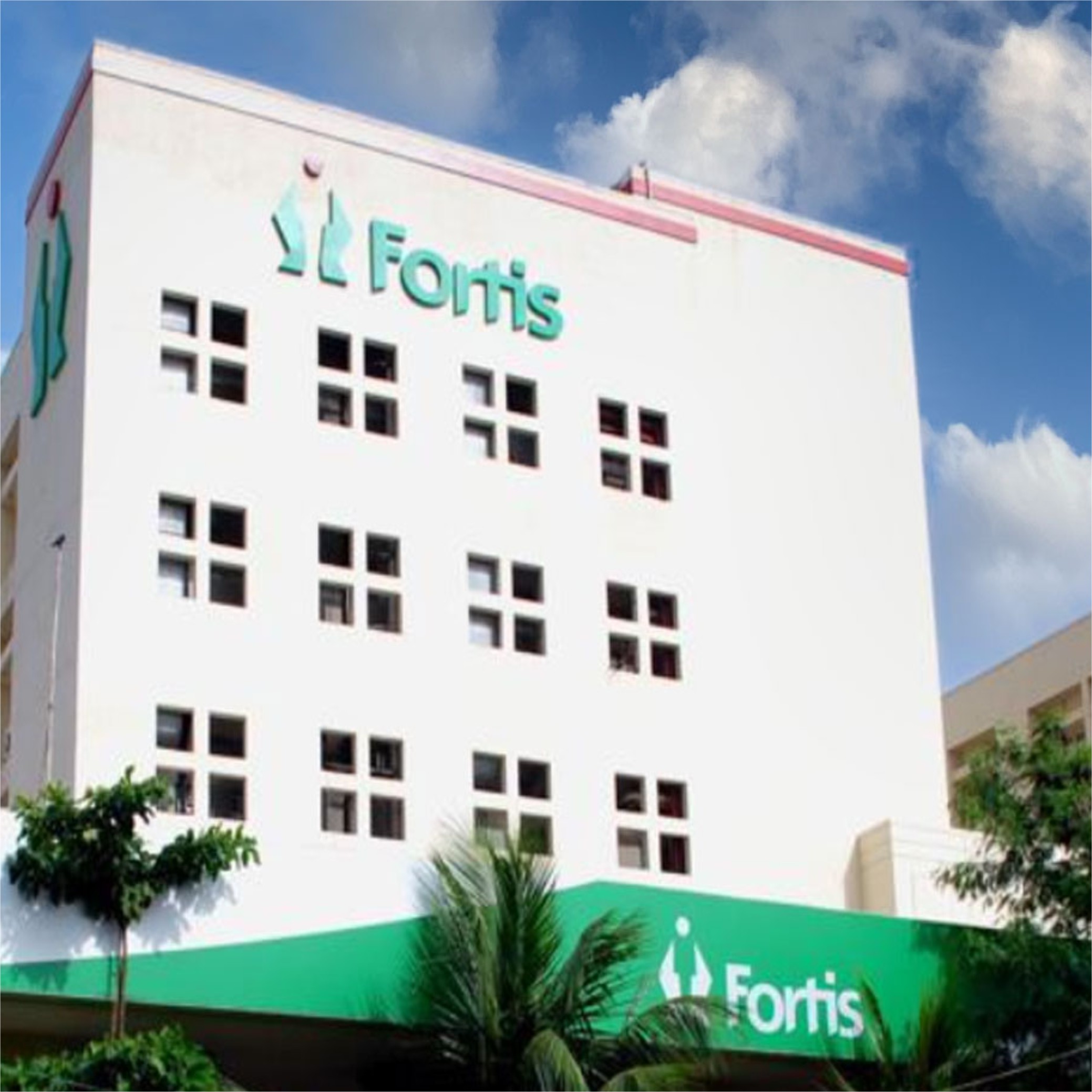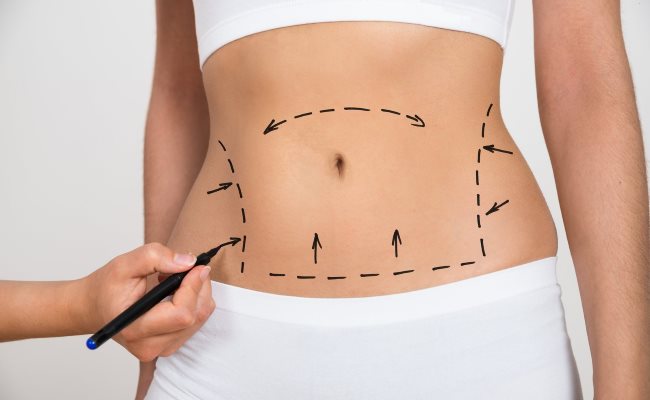Avail the best ICSI treatment for infertility in India
Do you desire to have a biological child but fail to have a child because of low sperm quality?
Around 15% of couples experience difficulty in conceiving a child. About half of these infertile couples experience infertility due to male attributes. But instead of looking for a treatment that could help them overcome the difficulty of conceiving a child, several men cope up with it in silence.
This silence can sometimes turn your relationship with your partner bitter, especially when your partner is looking forward to having a child.
Do not let the diagnosis of infertility deprive you of parenthood. Realise your dream of becoming a biological parent by overcoming your infertility with ICSI (Intracytoplasmic Sperm Injection).
Become a father of a biological child despite having an abnormal or low sperm count with an ICSI procedure. The latest ICSI procedure has helped several couples who were unable to have children because of below-average sperm quality or infertility caused due to unknown reasons.
Embrace parenthood without worrying about infertility because of lowered sperm quality like Alarba and Cumba did.


Alarba and Cumba, a young couple in their mid-thirties, were hoping to expand the family but despite trying hard the couple failed to conceive. Disheartened the couple IUI and IVF too after being advised by the doctor, yet the couple failed to conceive a child. Depressed by the failures the couple visited their doctor again who advised ICSI to them.
Dejected by the failure of the procedure earlier, Alarba started looking online for healthcare facilities that offered ICSI treatment. While searching online Alarba came across to MedicoExperts website and dropped a query with the patient care team of MedicoExpert.
Once the patient care team of MedicoExpert received Alarba’s request they contacted him and booked an online consultation for him with one of our empanelled doctors. During the consultation, the doctor explained to the family about the procedure.
After the consultation, the couple became hopeful and considered ICSI as an effective treatment that can enable them to embrace parenthood. Hoping to achieve success this time the couple flew to India to undergo ICSI.
Once the couple reached India the patient care team of MedicoExpert ensured hassle-free appointments for the couple. During the appointment, the doctor conducted a few tests for both Alarba and Cumba. Considering the past failures in IVF and IUI procedures and the test reports which showed low-sperm quality the doctors performed ICSI for the couple.
For performing the ICSI the doctors controlled ovulation for Cumba. Once the eggs matured the doctors extracted the mature eggs and fertilised it in a controlled environment with a single healthy sperm by injecting it into the egg.
Through ICSI the doctors were able to fertilise Cumba’s egg. Once fertilised the doctors allowed the fertilised egg to grow a bit before placing it into Cumba’s womb. Within a few weeks after the implantation, the couple visited the doctor as advised. The doctor performed a pregnancy test for Cumba, which came positive. The positive report suggested that the procedure was successful.
The couple was excited about the pregnancy and thanked the doctor and MedicoExperts.
There were no complications during pregnancy and Cumba gave birth to a healthy child after nine months.
Like Alarba and Cumba, if you are unable to conceive consult with your gynaecologist and explore ICSI treatment.
But before that let us understand more about this procedure.

What is ICSI treatment for infertility?
ICSI or Intracytoplasmic sperm injection is an effective procedure under the umbrella of assisted reproductive technology.
The ICSI treatment is an advanced fertility treatment that increases the chance of a successful pregnancy.
Typically, ICSI uses a machine-assisted fertilisation procedure for improved outcomes. During the ICSI, your doctor chooses one of the strongest sperm to be injected directly into the egg. Once the injected sperm fertilises the egg it forms an embryo in a controlled environment.
The newly formed embryo will then be allowed to grow in the laboratory for a few more days until it becomes a blastocyst or a stage when the embryo starts to divide the cells.
Once the embryo becomes a blastocyst your doctor will implant it into the uterus.
The ICSI has around 15% greater fertility than other leading fertility treatments like IVF and works wonders in cases of couples having male fertility issues.
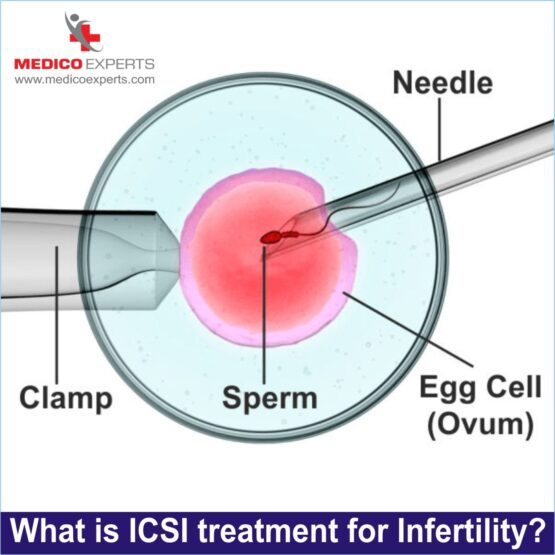
When is ICSI treatment done?
ICSI fertility treatment procedure for couples who are finding it difficult to conceive especially if they are facing male infertility issues.
Some of these male fertility issues include:
- Low Sperm count
- Poor Sperm Quality
- Poor Sperm Motility due to which sperm is unable to penetrate and fertilise an egg
- Any abnormality or blockage in the male’s reproductive tract that affects the normal production or ejaculation of sperms
However, sometimes ICSI helps women who had previously failed to conceive with IVF because of some underlying causes including:
Sometimes due to disturbance in the ovulation cycle, the menstrual cycle gets irregular or sometimes there is no ovulation during a certain menstrual cycle which may affect the availability of eggs for fertilisation.
Blocked or impaired fallopian tubes (a tube through which an egg travels from the ovaries into the uterus) prevent the fertilised egg from reaching the embryo.
Sometimes women in their thirties and forties tend to lose their normal ovarian function. In such cases, the ovaries fail to produce normal amounts of oestrogen hormone and to release mature eggs regularly.
This occurs when the uterine wall tissues start growing outside the uterus. This abnormal growth then starts to affect the normal functioning of the ovaries, fallopian tubes and uterus.
Tubal ligation is a type of sterilisation procedure wherein the fallopian tubes are either blocked or cut to permanently prevent pregnancy.
In such cases, if the female wishes to conceive, IVF can be an alternative solution rather than a tubal ligation reversal procedure.
In cases where there has been no known cause of infertility despite doing all the evaluations, ICSI can be the solution.
What is the procedure for ICSI?
Intracytoplasmic sperm injection or ICSI treatment procedure is an advanced form of IVF which is performed using a specialised technique called micro-manipulation.
This technique uses a special microscope along with other surgical tools like micro-injectors and micro-pipettes( a small tool to collect sperm) to select and handle a single healthy sperm and inject it directly into an egg.
The steps of the ICSI procedure are somewhat similar to the IVF procedure except for the phase of fertilisation.
Let us now understand ICSI treatment step by step procedure.
Normally, a woman produces one egg during each menstrual cycle. Like IVF, for ICSI as well we need multiple eggs since it increases the chances of developing a viable embryo.
To achieve that, during the stimulation phase, a woman will be given daily injections of fertility medications for 9 to 11 days. This will boost egg production and enable the ovaries to produce several eggs in one cycle.
During this period, the fertility specialist will perform regular blood investigations and ultrasounds to monitor the production of eggs and to determine the perfect time to retrieve them.
A sperm sample from your partner can be taken in two ways. Either directly through semen collection or we can extract the sperm surgically from your partner’s testis or epididymis (a gland that produces sperm) in case of poor sperm count and quality.
Egg retrieval also known as follicular aspiration is a small surgical procedure performed under anaesthesia. Under the guidance of ultrasound, the surgeon will pass a thin needle through the upper portion of the vagina into your ovary and an egg-containing follicle. This needle will then aspirate the eggs and fluid out of each follicle.
The recovery after this procedure is usually rapid and you will be monitored for the next 1 hour after the procedure before going home. Some women may experience mild cramping on the day of retrieval which usually subsides by the evening of retrieval.
In this phase, the semen sample is taken from the male. The eggs are identified and isolated from the follicular fluid and placed in an incubator. Later, these eggs are fertilised with sperm by Intracytoplasmic Sperm Injection (ICSI) technique.
The embryologist picks up a single sperm under a microscope and injects it directly into the egg cytoplasm using a small glass needle called microinjection.
This egg is then monitored to document fertilisation. Once fertilised, the egg starts dividing and develops into an embryo. The embryologist keeps a close check on the embryo to make sure it matures properly.
On day two or three after fertilisation, the embryos will be evaluated for blastocyst culture. The embryos are then grown for five or six days until they reach the blastocyst stage.
This is a painless procedure in which the embryo is placed into the uterus through a highly specialised catheter under the guidance of ultrasound. No sedation is necessary for this procedure and is usually done 3-5 days after fertilisation.
After this embryo transfer, progesterone supplementation via injection or vaginal suppository will be given for the next 10-12 days and a blood pregnancy test will be performed approximately 2 weeks after the egg retrieval date.
A successful pregnancy occurs when the embryo implants itself into the uterine wall called the endometrium. This can take 6-10 days after the embryo transfer phase.
Then the initial pregnancy test is performed to determine if you are pregnant. Once the pregnancy is confirmed, you will be referred to the Obstetric and Gynaecologist for appropriate prenatal care.
Who is eligible for ICSI treatment?
ICSI is usually indicated for men having:
- low sperm count, or
- motility issues of the sperm.
ICSI is suitable for female facing:
- Ovulatory dysfunction,
- Diminished ovarian reserves,
- Tubal issues,
- Uterine problems,
- Premature ovarian failure,
- Endometriosis and unexplained fertility.
ICSI is suitable for couples who have not been successful in conceiving with IVF in previous cycles.
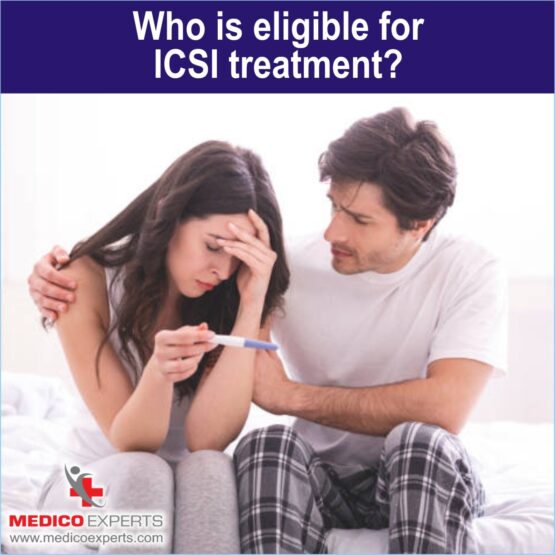
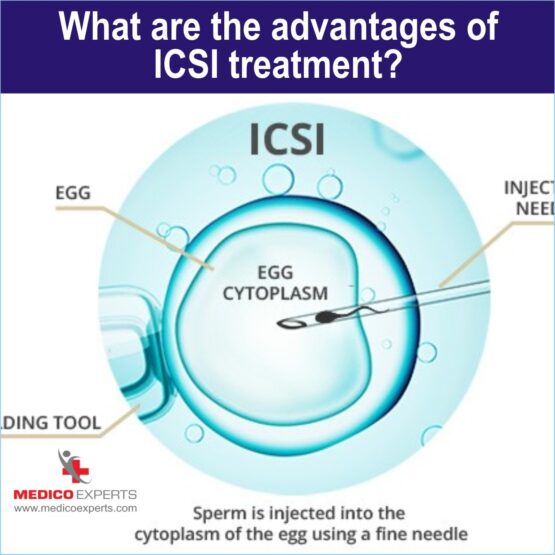
What are the advantages of ICSI treatment?
The advantages of ICSI treatment are:
- Better fertility rates
- Helps couples having fertility issues due to unknown reasons
- Helps males having infertility because of low sperm quality to father a child
- High success rate of the procedure
How to choose a country for the best ICSI treatment procedure?
ICSI or Intracytoplasmic sperm injection procedure requires the expertise of experienced and well-trained doctors and the availability of advanced healthcare facilities.
If you find it challenging to choose one country where you can get your ICSI procedure done do not worry. By considering the following tips you can select the best country for undergoing the ICSI procedure:
- Consider a country that provides you with innovative and advanced healthcare facilities
- If you are looking for affordable and cost-effective treatment, then consider a country that offers world-class healthcare facilities at a cost-effective price.
- Consider selecting a country that is well connected through flights from your home country for better connectivity.
- Choose a country with well-connected local transportation facilities, to ease your local commute while you are in that country.
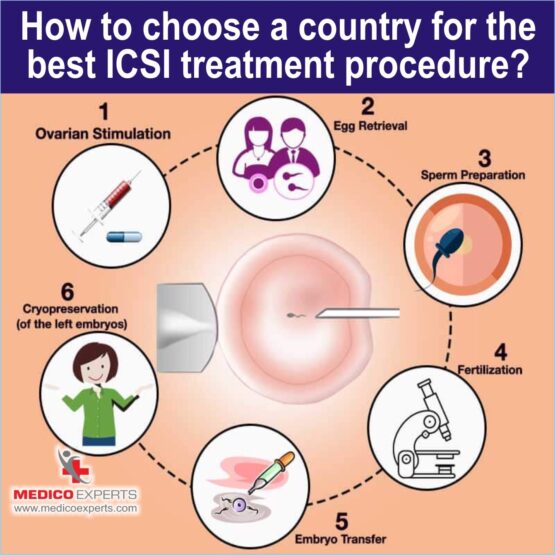
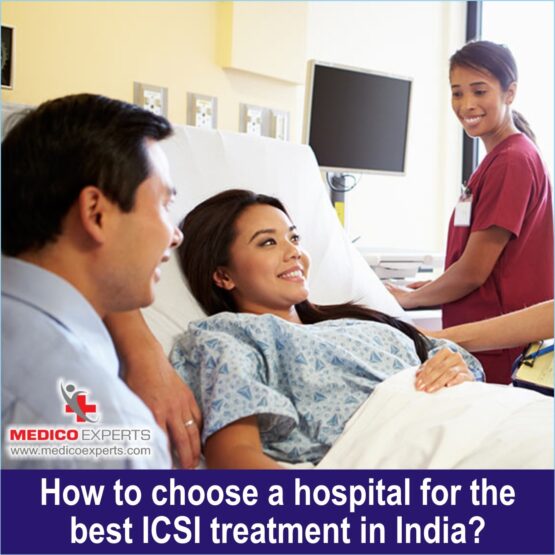
How to choose a hospital for the best ICSI treatment in India?
The hospital you select plays a vital role in the success of the ICSI treatment and your treatment experience. Therefore you must be cautious while selecting a healthcare facility when planning an ICSI procedure in India.
Also while choosing a healthcare facility in India, kindly cross-check that the hospital you have selected has NABH and JCI accreditation.
By choosing a NABH and JCI-accredited healthcare facility, you reduce your risk of developing any post-procedure complications or infections significantly.
Besides ascertaining NABH and JCI accreditation of the healthcare facility you have chosen for your ICSI procedure, please ensure that the chosen facility has advanced and innovative medical devices and well-trained staff who can handle any post-procedure complications.
How to choose a doctor for the ICSI treatment for pregnancy in India?
Selecting a qualified doctor for your ICSI procedure is crucial because the procedure has a higher success rate when performed by someone who holds expertise in performing it.
Also while selecting a doctor kindly consider someone:
- With whom you feel comfortable
- Who has successfully performed the procedure in past
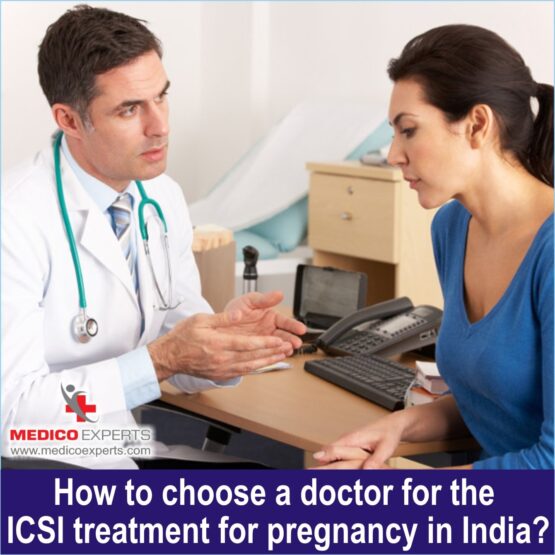
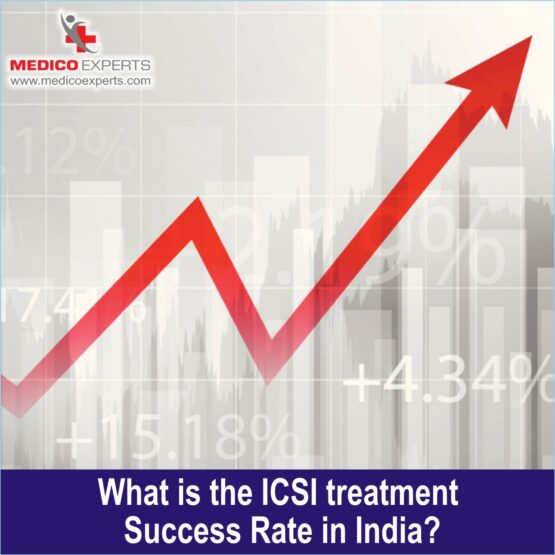
What is the Intra Cytoplasmic Sperm Injection treatment success rate in India?
Typically the success rate for ICSI is around 80 to 85%, which means that about eight out of ten eggs will fertilise normally during the ICSI procedure.
ICSI is considered to be one of the most successful infertility treatment methods.
Through the ICSI process, conception has been achieved by many couples with challenging male factor infertility issues.
How much does ICSI treatment cost in India?
The cost of ICSI treatment in India depends on various factors like the city, hospital, and doctor you have chosen for undergoing Intracytoplasmic sperm injection.
Typically, the cost of ICSI treatment in India is:
| Procedures | Cost of the procedure in INR | Cost of the procedure in USD | |
| 1 | ICSI Evaluation Package | 45,000-80,000 | 600-1000 |
| 2. | Intracytoplasmic Sperm Injection (ICSI) | 2,80,000- 4,80,000 | 3500-6000 |
| 3. | Intracytoplasmic Sperm Injection (ICSI) with Donor Egg | 3,60,000-6,00,000 | 4500-7500 |
| 4. | Intracytoplasmic Sperm Injection (ICSI) with Donor sperm | 3,60,000-6,00,000 | 4500-7500 |
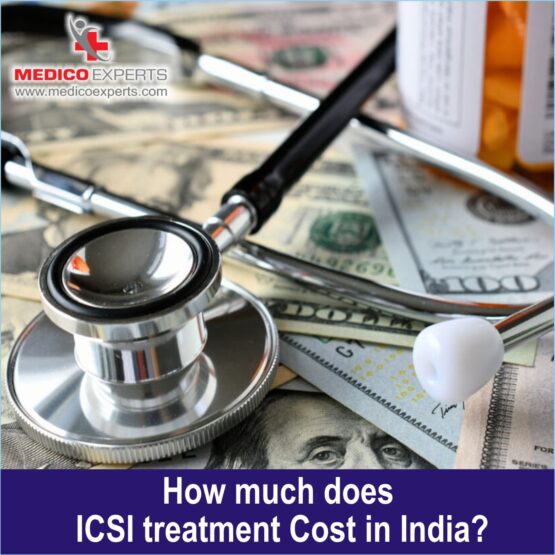
Frequently Asked Questions and patient concerns:
1. Is ICSI better than IVF?
Studies suggest that both ICSI and IVF treatment are beneficial in increasing the chance of fertilisation but these treatments work well in different conditions.
ICSI fertility treatment is beneficial for couples who are having difficulty conceiving a child because of unknown reasons or due to male infertility. On the other hand, IVF helps couples in conceiving a child with female-associated infertility.
2. What is ICSI fertility treatment?
A potential treatment for male infertility is Intra cytoplasmic sperm injection (ICSI). In this process to ensure fertilisation, the sperm is directly inserted into an egg inside a test tube. ICSI treatment is a possible choice for a couple to conceive, especially when faced with male infertility problems.
3. What are the disadvantages of ICSI?
Some disadvantages of the ICSI procedure include:
- Increased risk of miscarriage
- Increased risk of congenital and genetic malformation of the foetus or the unborn child
- Risk of damage to the harvested egg during fertilisation
- The male child born through ICSI are at risk of developing male infertility
4. Is ICSI treatment painful?
No, the treatment is not painful and is conducted under the effect of anaesthesia to minimise any discomfort that can be felt during the extraction of the egg or during the implantation of the blastocyst.
5. What is the difference between IVF and ICSI treatment?
In ICSI, in a laboratory setup, the embryologist chooses a single high-quality sperm to be injected directly into the egg, while in IVF, fertilisation takes place in a petri dish where many sperm are placed near a mature egg.
6. Are all the eggs that have been extracted during egg retrieval injected during ICSI treatment for fertility?
No! sperms are only injected into eggs that are mature to increase the chances of fertilisation. The chance of fertilisation is very low in cases where immature eggs are incubated with sperm. On average, we can inject 75 to 80 percent of the recovered eggs.
7. How many days of rest are required after ICSI treatment?
Generally, doctors advise 2-3 weeks of bed rest after implantation of the blastocyst in the womb.
8. When can I recover after an ICSI procedure?
The recovery timeline for ICSI is similar to IVF treatment. One cycle of ICSI takes about 4-5 weeks to complete. It includes the steps like ovulation induction, egg retrieval, sperm retrieval, fertilisation using micro-manipulation and embryo transfer.
You would need to take care for the first 4-5 weeks after the implantation of the blastocyst in your womb.
9. How much time does it take to undergo ICSI treatment for fertility?
One cycle of ICSI takes about 4-5 weeks to complete and often boosts the success rate of conception for couples facing male infertility issues.
The outcome of ICSI is overwhelming since the doctor injects a single sperm directly into an egg which guarantees fertilisation of egg and sperm and thereby increases the chances of successful conception.

MedicoExperts is a Global virtual hospital which is established to offer quality healthcare services at affordable pricing without compromising the success rates of the treatment.
MedicoExperts is having a network of highly experienced super specialist doctors and well equipped hospitals across the globe and offering second opinion through online video consultation and surgical interventions through its empanelled super specialist doctors at its network hospitals in 17 countries from 3 continents.
By the virtue of its approach and model, MedicoExperts is successfully achieve to deliver
- Latest and most advanced treatments with success rates of international benchmarks.
- Multiple cost options depending upon the hospital facilities, with the same doctor.
- Treatment option in multiple cities/state/countries.
- Trust and peace of mind.
Most suitable for patients who are looking for:-
- Planned Surgeries and treatment from most experienced doctors and at multiple cost options as per hospital facilities with best possible outcomes.
- Second Opinion from expert doctors.
- Complex cases involving multi specialities
- International patients looking for treatment from Indian doctors

Author Bio:
Dr. Ashita Nandgaonkar – BHMS, MS in psychological counseling
Dr. Ashita Nandgaonkar is a highly esteemed homeopathic doctor with a passion for holistic healing and patient-centered care. Dr. Nandgaonkar remains dedicated to raising awareness about the benefits of homeopathy and promoting its integration into mainstream healthcare. Her mission is to empower individuals on their journey to health and wellness, embracing the holistic approach that homeopathy offers. She has a special interest in researching Homeopathic solutions for diseases that are difficult to treat with conventional medicines and therapies.
Content Medically Reviewed By MedicoExperts Editorial & Clinically Review Board





